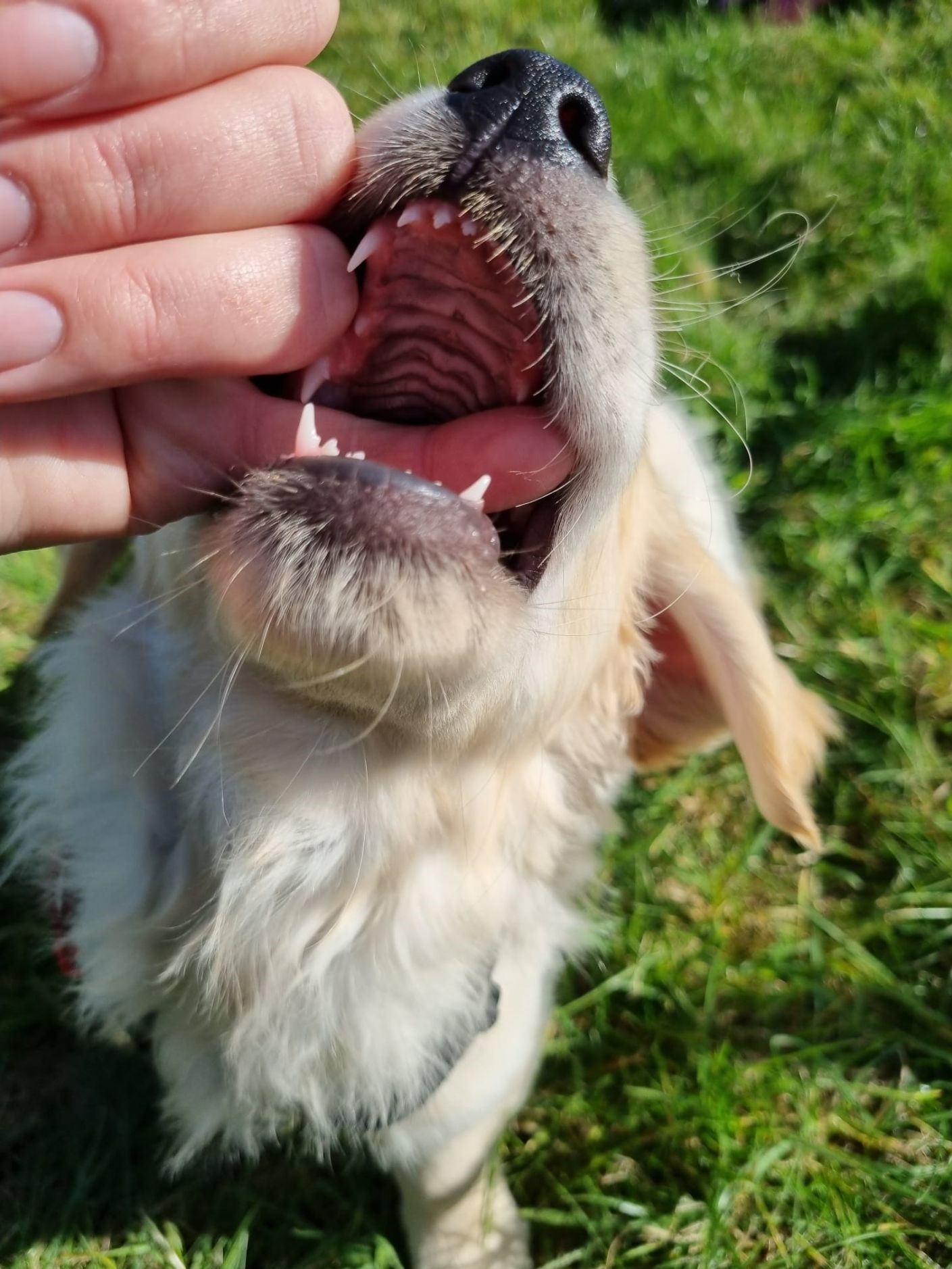
Bringing home a new puppy is an exciting and joyful experience. However, it also comes with its fair share of challenges, one of which is the issue of puppy biting. Many new puppy parents are caught off guard by how painful and relentless a puppy's biting can be. It is a common behavior among puppies, but it can leave owners feeling overwhelmed and unsure of what to do. In this blog post, we will delve into the topic of puppy biting and provide some practical tips to help you navigate through this challenging phase.
Puppy biting is a normal part of puppy development, all puppies will mouth or nip at some point. Their naturally sharp puppy teeth and instinct to explore the world with their mouths contribute to this behavior. Some puppies may nip, bite, or mouth more than others and it varies from dog to dog. The reasons behind puppy biting can be numerous, including being over-tired, over-stimulated, teething or simply needing to chew/exrcise the jaw.
The arrival of my first puppy, Dave, was accompanied by excessive biting, with holes in my clothes, scratches and a chewed table leg - the most paintful was nibbled toes! Thankfully with my continued learning and growth the challenge of puppy biting was a much easier journey with my subsequent puppies.
Tips to Overcome Puppy Biting
1. Satisfy the need: Puppies need to chew and explore with their mouths so provide plenty of 'legal' items to chew on. This will redirect their biting instinct towards these toys, saving your hands, clothes, and furniture from their sharp teeth.
2. Provide Stimulation: Puppies often resort to biting when they are bored or lack appropraite mental stimulation. Engage their brains with short play sessions, food searching games and puzzles, time outside and gentle physical exercise.
3. Use Positive Reinforcement: Reward your puppy with treats or affection when they interact gently instead of biting. This positive reinforcement helps them understand the desired actions.
4. Understand why it happens: Reviewing your puppy's day and interactions will help you begin to understand the emotions and excitement surroudning enthusiastic puppy biting. If you can predict biting you can learn when to redirect your puppy's focus before the biting begins.
5. Avoid over-excitement: In the early stages, it is crucial to avoid too much over-excitement. This helps your puppy to remain calm enough to think and make good choices. Over time (and with age) your puppy will learn to differentiate between appropriate play and rough biting.
6. Seek Professional Help, if Needed: If your puppy's biting persists or becomes worse, consider seeking guidance from a professional dog trainer or behaviourist. They can provide personalised advice and techniques to support you and your puppy.
Explore more about how to manage your puppy's nibbling with my short book Ouch! A practical guide to puppy biting
Get your copy here!